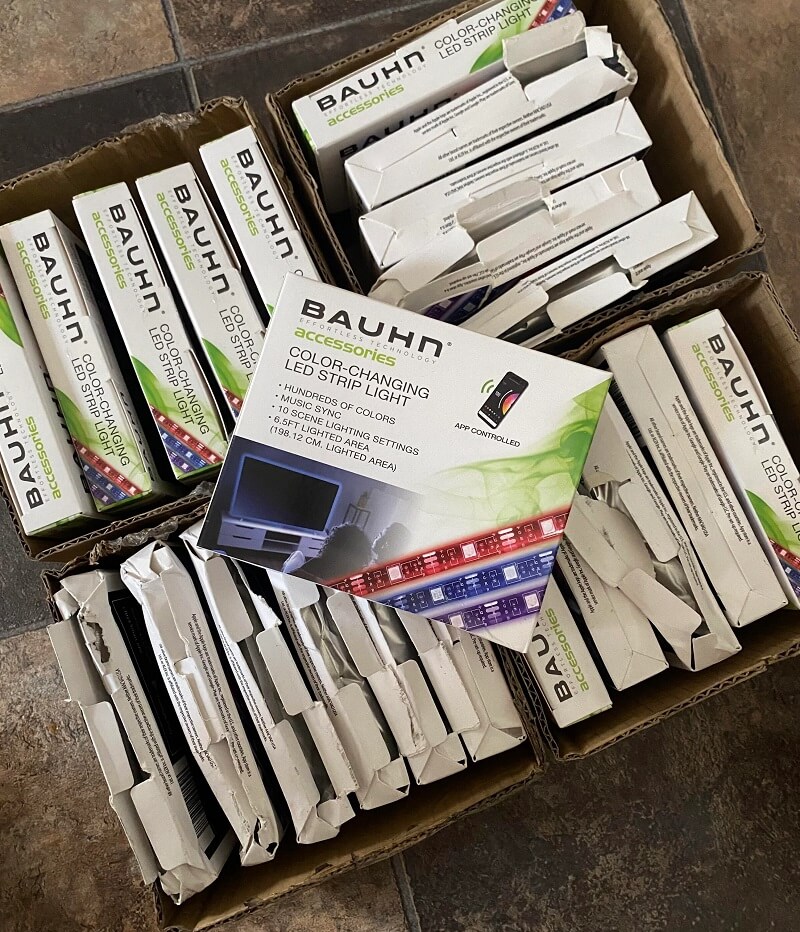A Reddit post has sparked outrage and concern over the wasteful practices of major corporations.
A frequent dumpster diver took to the online platform to share a few photos from their hauls, exposing the alarming amount of perfectly good products being discarded by corporations.


What's happening?
The Reddit user, posting in the r/ZeroWaste community, revealed that their photographed findings represent just "1% of what we find dumpster diving."
The photos showcase an array of undamaged, non-expired items ranging from food products like Triscuits, Oreos, and baby formula to household goods such as LED light strips and even small appliances like a Ninja Ice Cream blender and an Instant Pot.
What's particularly concerning is that these items could have been donated or discounted instead of tossed in the trash. The poster suggests that companies might prefer disposal for tax write-off purposes, highlighting a disturbing incentive in our current system.
One frustrated commenter pointed out, "Most places actively try to prevent anyone from gathering up this 'garbage' (e.g. locked dumpsters, etc) pretty much all in the name of profits... which is SO frustrating to see and hear the reasoning of."
This practice wastes valuable resources and criminalizes efforts to salvage usable goods.
Why is corporate waste concerning?
This level of waste has significant environmental implications. When usable products end up in landfills, they contribute to dirty gas pollution and resource depletion. Food waste, in particular, contributes to our planet's overheating as it decomposes and releases methane, a potent heat-trapping gas.
Throwing out dumpsters full of perfectly usable goods also perpetuates social issues like hunger and poverty. As many families struggle to afford necessities, it's disheartening to see perfectly good products discarded rather than distributed to those in need.
Are corporations doing anything about this?
While some corporations have implemented sustainability initiatives, this Reddit post suggests there's still a long way to go. Many businesses have donation programs and partnerships with food banks. Still, these efforts clearly aren't comprehensive enough to prevent large-scale waste.
It's worth noting that some companies cite liability concerns as a reason for not donating certain items. However, laws like the Bill Emerson Good Samaritan Food Donation Act provide liability protection for food donors, indicating that there are ways to address these concerns.
What's being done about corporate waste more broadly?
Fortunately, there are positive developments in the fight against corporate waste.
Some cities and states are implementing food waste bans, requiring businesses to divert organic waste from landfills. France, for example, has passed a law requiring supermarkets to donate unsold food to charities.
Consumers are also taking action. The growing popularity of apps like Too Good To Go, which allows shoppers to purchase surplus food at a discount, shows it's possible to reduce waste while benefiting both businesses and consumers.
As individual consumers, we can make a difference by buying from businesses with strong waste reduction practices and advocating for stricter regulations on corporate waste. Choosing products with minimal packaging, buying only what we need, and composting our food scraps are simple, effective ways to reduce our personal footprint.
When consumers, businesses, and policymakers work together, we build a more sustainable future where valuable resources are used efficiently rather than carelessly discarded. Every step toward reducing waste is a step towards a more equitable society.
Join our free newsletter for good news and useful tips, and don't miss this cool list of easy ways to help yourself while helping the planet.









